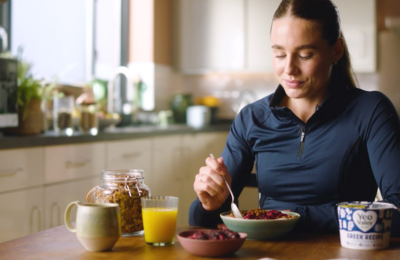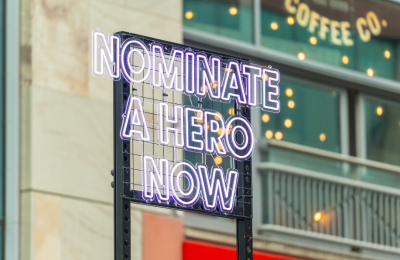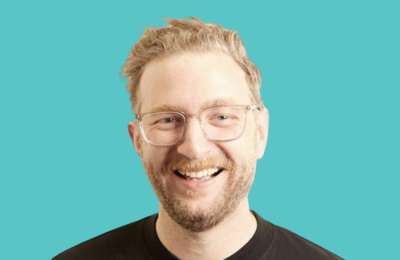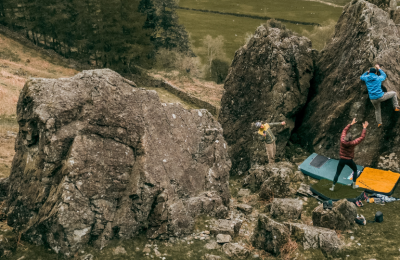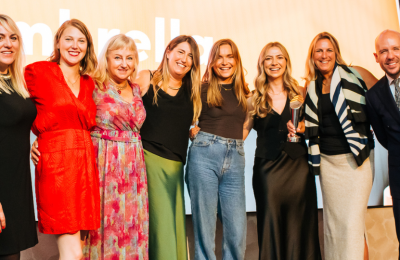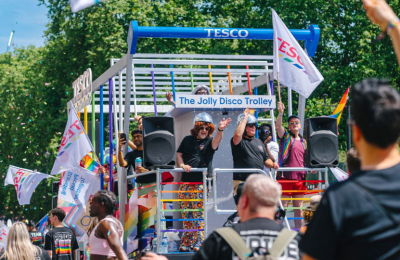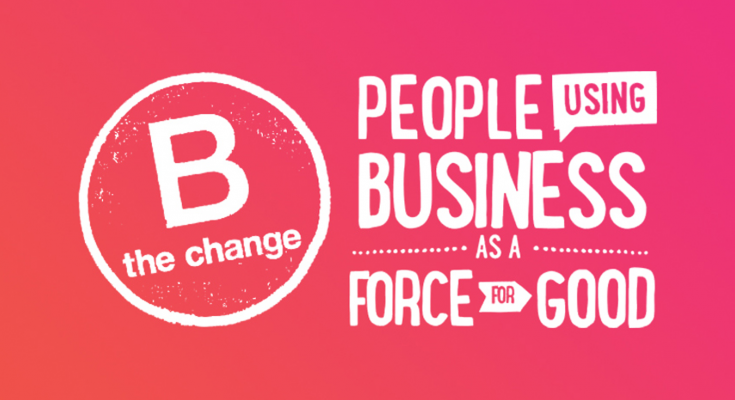Justine Clement, Founder & CEO of The Life Adventure & The Happy Prize Company, shares the benefits and challenges of becoming a certified B Corp.
A few weeks ago the IPM ran a thought-leadership event in conjunction with the IPA on ‘The Future Of Sustainability: Why Reducing Your Impact On The Planet Needn’t Reduce The Impact Of Your Campaign’. Xavier Rees, the CEO of Havas London and I both spoke about the benefits (and the pain) of becoming a B Corp. As is often the case, when we opened up for questions, many people in the audience wanted to discuss the idea of B Corps – what the benefits are, and the reasons for applying for certification. So, I thought it would be worthwhile writing about this, for all those who may be considering it, or who may wish to consider it in the future.
What is a B Corp?
It stands for ‘Benefit Corporation’ and was founded in the USA in 2006 by the entrepreneurs behind AND1 (a US sportswear company that became one of the earliest ‘profit with purpose’ businesses). B Corporations are certified by the non-profit B Lab and must meet rigorous standards of accountability, transparency and social and environmental performance. Alongside that, applicants must legally enshrine ‘triple bottom line’ principles into their Articles of Association – placing impact on people and planet alongside profit in any decision taken by its management team.
Certified B Corps now number almost 2,500 businesses across 50 countries – including the likes of Triodos Bank, Warby Parker, Patagonia, Danone, One Water, Ella’s Kitchen, Natura and Ben & Jerry’s. In the agency space, Havas London and Mullen Lowe Salt are B Corps and I’m sure others will follow. It means that as a business, they are actively trying to pursue impact goals alongside financial goals – not only because they think it’s the right thing to do, but also because they think there’s a strong commercial rationale for it.
How do you become a B Corp?
As a very quick overview, you need to complete a rather gruelling independent assessment online. This takes time. The questions track your business’ community and environmental performance, accountability and transparency. You’re required to gain a score of 80+ points in order to gain certification. However, as a result of various assessments along the way, you may reach 80+ points, but will keep getting knocked back down until you finally get there. This is done by making the changes necessary along the way. The criteria and process is understandably and undeniably strict.
Why are businesses becoming B Corps? The changing mindset and benefits
In the 2018 Deloitte Millennials survey, almost 40% of respondents stated that the goal of business should be to ‘improve society’ (second only to ‘generate jobs’ in terms of priorities). And in an earlier study by the Intelligence Group, 64% of millennials said it was a priority for them to make the world a better place – while 88% wanted ‘work-life integration’. Today’s workforce is rejecting the old Milton Friedman notion that the only social responsibility of business is to maximise profits; they think business should also be trying to make a positive difference in the world. And why not. Why should we put our values out the window when we go to work?
People increasingly want to work for, buy from and invest in companies that have mission and impact at their heart of their model. So for businesses of any size, there’s an increasingly attractive business case for an impact-driven approach. By making it easier to attract top talent, additional customers, and new investors, it can actually serve as a source of commercial advantage.
Our journey
Our experience of becoming a certified B Corp is that it’s not for the feint hearted. I began this process for The Happy Prize Company in June 2018 and still feel a long way from certifying. A big part of that, as I understand it, is that there are so many companies applying for B Corp status that B Lab are currently a little overwhelmed. That said, changing your business from the inside out also takes time. The larger your organisation and the more unfavourable your business practices are, the greater the steps required. In my opinion you have to really believe in doing this and be authentic about wanting to operate in this way. This is not a nice to have/tick in the sustainability box, this is a fundamental shift and an entirely new focus for any business.
So why do it?
For us, the journey began because I was personally inspired by those starting the B Corp movement in the UK. I knew a few of those people and admired their passion and their outlook on the right way to do business, support the local and wider community and do right by the environment. And from a personal perspective, I was also at a point in my life where I was looking not just to run another company, but one that matched my changing values on the environment and my growing awareness of the importance of wellbeing and our connection to nature. I’ve also always loved innovation, and this felt very innovative when I first fell upon it. It still is, but now I see it as fundamental to the way businesses should be run, not innovation.
The challenges to gaining certification are many, such as banking with a ‘local bank’ or a B Corp bank such as Triodos. We bank with the local NatWest, but that doesn’t count (we’ve still no clue what a ‘local bank’ actually means to B Lab). Triodos are wonderful, but not easy as a business banking solution when you’ve been used to a sophisticated online banking system such as NatWest. So, adjustments such as these take time, patience and trust. But by far the biggest issues for us stem around how we can balance running a company offering uplifting experiences including worldwide holidays (and depending on what a client asks us for, could include sending people to huge theme parks such as Disney) with our (and B Corp’s) values which are aligned to positive environmental practices. Also challenging for us is using more local suppliers, as we currently work with lots of hotels and experience companies overseas, as well as finding enough who seek to operate in the way a B Corp would expect or even demand.
We haven’t changed everything over this 18-month period by any means, but we’ve also come a long way. We know which direction we want to head and much of that revolves around education –educating ourselves on what’s out there that’s more sustainable and aligned to our values, and in turn educating our agency clients, the brands we work with and the winners we send on our experiences. We’re not there yet, but I thought it interesting to include Mullen Lowe Salt’s reasons why they’ve persevered through this process. This is what they have to say:
- Being a B Corp makes us a better business. The B Corp process forces us to consider questions of diversity and transparency, which has improved our capabilities and decision making.
- Being a B Corp sets us apart. Hopefully one day it won’t, but for now it helps differentiate us from competitors jumping on the purpose marketing bandwagon.
- Being a B Corp attracts better staff. We’re not the biggest company or the highest payer. But we get more than our fair share of high-quality applicants, who tell us it’s because they want to work for a B Corp.
- Being a B Corp motivates our employees. We’re lucky enough to employ great people, and they tell us consistently that they’re proud to say they work for a B Corp.
- Being a B Corp gives us better customer relationships. It makes it clear from the outset that we want to help them create substantive change rather than PR gloss, so our expectations are more closely aligned.
B Lab UK executive director Katie Hill put it very well: “The word ‘revolution’ is overused these days – but with the range and calibre of businesses that are part of the B Corp movement, who are so committed to using their business as a force for good, it’s hard to deny that meaningful change is underway. Today’s most exciting businesses are operating for the benefit of all who contribute to its success – for shareholders and for stakeholders – and as such they are taking responsibility for their broader impact on employees, on communities and on the planet. This is the future of business.”
And if you decide to go for it and want any help and advice, you’re very welcome to contact me at justinec@thehappyprizeco.com




